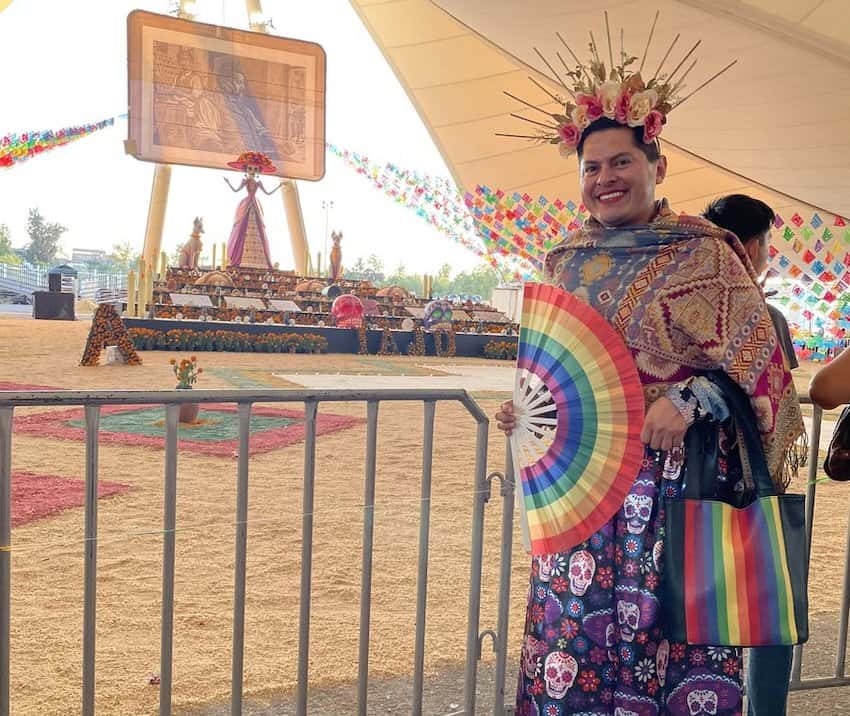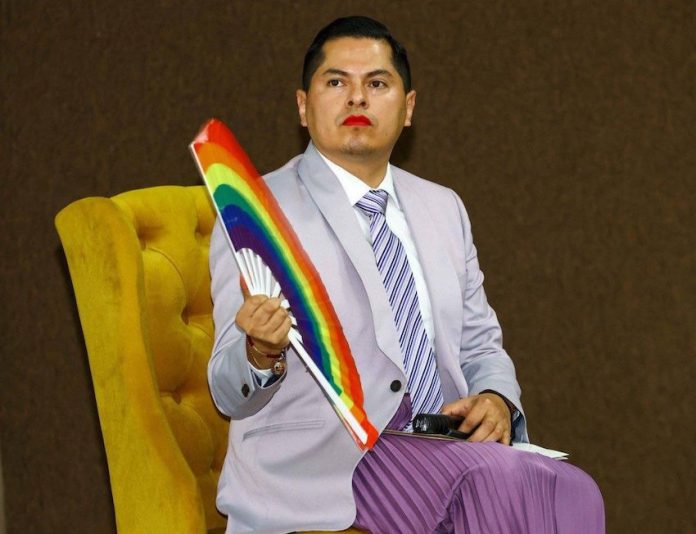Thirteen months after being sworn in as the first non-binary electoral magistrate in Latin America, Jesús Ociel Baena Saucedo was found dead at home in Aguascalientes on Monday.
The lifeless body of one of Mexico’s most prominent LGBTQ+ activists was found around 9 a.m. with wounds caused by a knife, according to the state prosecutor’s office.

Another person, reportedly Baena’s partner, also was found dead, reportedly also with knife wounds, inside the magistrate’s home in the capital city of Aguascalientes.
“We don’t know if it is a homicide or an accident,” said Rosa Icela Rodríguez, the head of Mexico’s Ministry of Security and Citizen Protection (SSPC). “An investigation is going to be done.”
The killing sent shock waves throughout Mexico’s LBGTQ+ community and human rights groups worldwide. Immediately there were calls for Baena’s death to bring about stronger anti-discrimination laws long demanded by advocates in the country.
Baena, who was born in 1984 according to their profile on the social media site X, was an appointed judge with the Electoral Tribunal of the State of Aguascalientes, a division of the Mexican justice system that specializes in matters relating to elections.

Born in Saltillo, Coahuila, and a resident of Aguascalientes for 11 years, Baena earned a degree in law from the Faculty of Jurisprudence of the Autonomous University of Coahuila, where they also completed a master’s degree in constitutional law and government policies.
Baena went by the pronouns they, she and he, according to a report in the newspaper Milenio.
Earlier this year, Baena made the news by obtaining a re-issue of their birth certificate, with a box added for “non-binary,” from the Civil Registry of Coahuila.
A month or so later came the issuance of Mexico’s first non-binary passport, to Baena, in honor of the International Day Against Homophobia.

On Sunday, Baena participated in a round table in Oaxaca, speaking about LGBTQ+ rights. In their career, they pioneered initiatives on behalf of trans children, same-sex marriage and gender-identity recognition.
Baena said activists provided “a lot of support” after their appointment in October 2022 because “it is a position where real decisions are made that change and transcend the lives of many people.”
But there was also resistance, criticism and hate speech. “There were calls from bar associations and people from these bars who [asked] the presiding judge how it was possible that they allowed this type of daring [appointment], especially in a highly conservative state,” Baena said.
Mexico faces ongoing issues with discrimination and violence targeting LGBTQ+ individuals. According to LetraEse, a digital news site focused on sexuality and gender, murders of LGBTQ+ persons in Mexico increased by nearly a third from 2020 to 2021.
With reports from Milenio and El Universal
